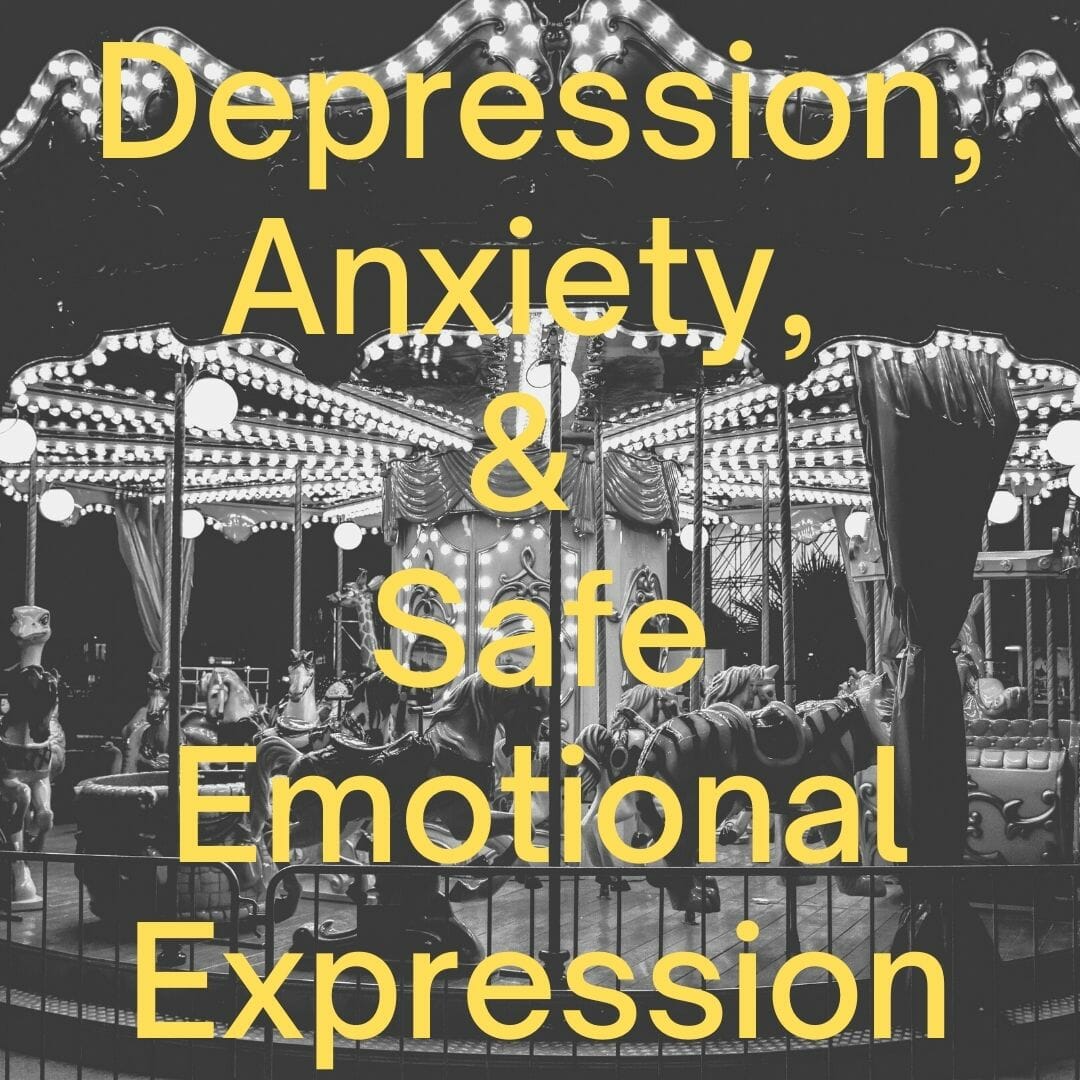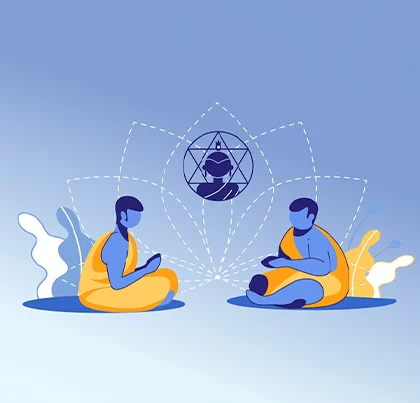Depression, Anxiety, and Safe Emotional Expression

Whether someone is suffering from mental illness or addiction, feelings of anxiety and depression can be very prevalent through every day of someone’s life. While addressing these feelings, people can feel as if they are simply done feeling sad or fearful and want to move towards a happier life. While happiness certainly is the goal, it is important to also remember that emotions are still important for someone to experience. Addressing depression and anxiety isn’t about denying someone’s ability to feel negative emotions, but rather moderating the way in which these emotions will manifest.
Acknowledging That Emotions Are a Part of Life
Depression and anxiety can feel all-encompassing, putting a negative lens over someone’s entire life. It can cause someone to see innocuous situations in a very pessimistic light, and someone can feel desperate to make this negative lens vanish. However, that doesn’t mean that someone should strive to eliminate sadness from their lives entirely. Addressing anxiety or depression involves addressing the excessive, debilitating frame of mind that it creates and not necessarily the sadness itself. It is still important to experience sadness or fear, just as much as it is important to experience happiness and excitement. They are all a part of being a person and working to eliminate or otherwise deny someone any of these emotions, positive or negative, can cause even further problems down the line in recovery. Rather, it is important to find a safe way in which to express someone’s anxiety or depression so it does not continue to build up or debilitate them. While the methods of achieving this will differ from person to person, it is important to develop a plan that allows someone to experience all of the emotions present in their lives, but in a safe way.
Dangers of Forcing Happiness
It can be tempting in recovery to try to force happiness within oneself. While happiness is the ultimate goal, it isn’t something that can be reached artificially. Trying to force happiness in someone’s life, or simply denying one’s right to express their sadness over a guise of happiness, can lead to its own issues. Not only does it cause other emotions to continue to be bottled up and get ready to express themselves in other, potentially more dangerous ways, forcing happiness is also extremely stressful. Trying to constantly force emotions is exhausting and feigning happiness can accentuate the stress on someone’s own recovery as a whole. In an effort to “recover faster,” someone can instead end up hindering their own progress by taking false steps in their journey. Happiness is the goal, but it isn’t expected that someone can cope with the debilitating nature of anxiety or depression immediately. Instead, the first step is still finding a safe way to express these inherent emotions of sadness or negativity in order to begin processing them in a healthy, progressive fashion.
What Does “Safe Emotional Expression” Mean?
Safe emotional expression constitutes two different things. First, it means that someone permits themselves to express whatever emotion that they are genuinely feeling. This means they are allowing themselves to be sad or upset when something reasonably upsets them. By doing this, each person can learn to then treasure and celebrate when they are feeling good emotions as well, and they can then allow themselves to be happy in their lives just as they allow themselves to feel any other emotion. Second, it means having an outlet that is appropriate for the emotion they are feeling and expressing the emotion in a non-harmful way. This can mean avoiding destructive outbursts, alcohol, drugs, gambling, or other detrimental behaviors that may come about due to someone experiencing their own drastic emotional state.
Finding a Safe Outlet
Finding a method for safe expression will differ from person to person. For some, art therapy can be the way in which they can put their sadness or anger on paper and take these internal feelings and put them into a physical, external form to express them. Others may watch horror movies in which to project their anxieties in order to then gain agency and direction over them, allowing them to have a discernible source of anxiety and also the control over when to pause it or turn it off. Video games can allow someone to vicariously live through emotional times while still feeling like an integral, participating member of the story. And still others will work off these emotions using exercise and movement therapy. However, none of these methods operate by denying someone the ability to feel an emotion. Instead, they work to give someone a method of expressing themselves while they feel the emotion, and that distinction is important when addressing the complex nature of managing these emotions. No part of recovery from anxiety and depression should deny someone what they are truly feeling, but rather help them gain agency and control over the emotions themselves and establish a safe and appropriate coping mechanism during these times.
Emotions are a complex part of everyday life, especially when someone is in recovery from mental illness or addiction to drugs or alcohol. Finding a safe way to work through someone’s emotions is a key part of the recovery process and Brighton Recovery Center prides itself on its incredibly varied approach to this safe expression. With a large, six building campus with a recreation center at its core, the sense of opportunity and community permeates Brighton. The recreation center provides a place for each person to exercise in its gym or yoga studio or just relax in the coffee house. Each of their programs, from inpatient and sober living to intensive outpatient, can be customized to help you address your emotions in a way that best impacts you, such as using meditation, movement therapy, art therapy, or even music therapy, among other options. If you or a loved one are struggling with addiction, trauma, or mental illness, Brighton Recovery Center is available to help you learn the skills you need to safely express your emotions in a healthy and progressive way. For more information on how we can help you, call today at (844) 479-7035.



